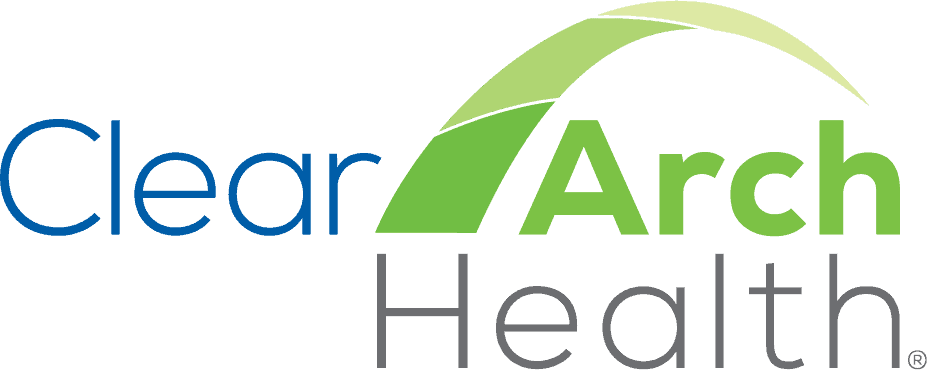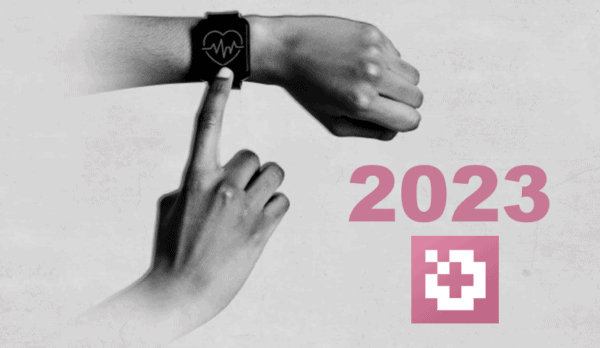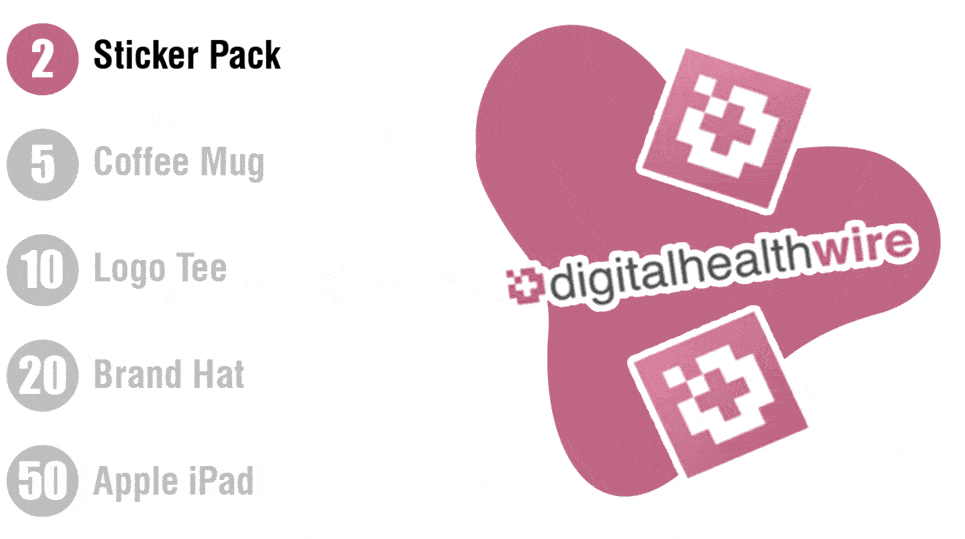|
Mid-Year Predictions | Cervical Cancer Care Gaps
May 18, 2023
|
|
|

|
|
Together with
|

|
|
|
“AI is way overhyped, and everyone’s describing what they have as AI. But if you can come to a health system and say, here’s the technology we’ve developed, and you can clearly quantify the benefit to their business, those are the ones that will see a lot of success.”
|
|
TripleTree Managing Director Seth Kneller
|
|

|
|
The digital health sector has gotten a bit of an ego check since the white hot market at the start of the pandemic. Rising interest rates and a minor banking crisis continue to put a damper on startups’ ability to raise capital, but a mid-year prediction roundup from some of healthcare’s top dealmakers gives a good preview of what might come next as the market cools.
Dudley Baker, Canaccord Genuity. Notable moves: Privia Health IPO, Doximity IPO
- Since 2020, many startups have sprung up to provide specialized behavioral health and chronic condition management benefits to employers, but the surge in valuations made many of them too expensive to acquire. These companies could have a hard time raising more capital on their own, so Baker expects them to seek out mergers of equals instead.
Claire Pearson, Barclays. Notable moves: Cricket’s merger with InterWell and Fresenius
- Pearson sees four areas ripe for M&A centered around new tech capabilities and scale: women’s health, orthopedics, cardiology, and kidney care. Pearson pointed to Cricket’s merger with InterWell and Fresenius as an example of what works in each of these sectors – it combined contracting, providers, and technology under one roof.
Fletcher Gregory, General Atlantic. Notable investments: Included Health, Vida Health
- Employers weary from working with too many vendors have begun narrowing their focus to companies that can deliver outcomes and lower costs. To make the cut, Gregory predicts that digital health startups working on a single problem are going to have to improve their clinical models in ways that they likely can’t do without combining.
Seth Kneller, TripleTree. Notable moves: KKR’s acquisition of Therapy Brands.
- Kneller favors companies that are addressing the labor crisis by helping hospitals and health systems become more efficient. Companies using AI to take over tasks like clinical documentation and administrative work look especially attractive to acquirers, but only if they can prove cost reductions for hospitals.
Karl Palasz, William Blair. Notable moves: Fortive’s acquisition of Provation
- Companies that employ behavioral health providers to deliver virtual care have struggled to live up to expectations due to a lack of differentiation and the clinician shortage. Palasz has his eye on companies that provide software to niche behavioral health practices, such as substance-use recovery or autism.
The Takeaway
Pending any major economic catastrophe, it seems like the general consensus is that the tide could start turning for digital health M&A within the next few months. Although the IPO market will probably stay limited, the partnerships that are forming now are setting the stage for more M&A in the back half of the year as companies look to combine so they can better weather the tough funding environment.
|




|
|
What is Patient Engagement for a CMIO?
In its patient engagement guide for hospital execs, Nuance examines the goals and challenges of Chief Medical Information Officers, highlighting the ways that AI-powered patient engagement solutions can help CMIOs reduce physician burnout and improve care delivery.
|
|
Glooko Outcomes Using Real-World Data
Modern diabetes management requires personalized, always-on, and connected care. Explore Glooko’s latest clinical studies to see how remote patient monitoring is making real-word improvements across multiple glycemic outcomes.
|
|
How Medallion Helped Skintap Launch in 15 States
In order to launch and scale, Skintap had to build a network of dermatologists who could see patients across the US. Learn how Medallion helped Skintap’s providers get licensed in over 15 states in less than four months – without any headaches and well before their launch date.
|
|
- Closing Cervical Cancer Care Gaps: A UNC-led study in Lancet Public Health found that home HPV testing kits could dramatically help close cervical cancer screening gaps. The researchers enrolled 665 women who hadn’t been screened for cervical cancer in the last four years, with two-thirds receiving a home HPV testing kit along with scheduling assistance for an in-person screening, while the control group received scheduling assistance alone. Three-quarters of women who received home testing kits returned it, and 72% went on to schedule an in-person visit (vs. just 37% of the controls).
- Wellthy Lands $25M: Wellthy landed $25.5M to support caregivers with their various responsibilities through its “tech-enabled care concierge.” Wellthy hires skilled individuals like social workers then pairs them with families to help with tasks such as transportation or picking up medical supplies. The company got its start as a D2C service in 2015, but has since successfully pivoted to the employer market, which makes sense considering that caregivers frequently leave the workforce to look after loved ones.
- Pandemic Fuels Adolescent Eating Disorders: Eating disorders among children spiked significantly during the pandemic, with anorexia nervosa nearly twice as prevalent among patients ages 0-17. Trilliant Health data shows that anorexia nervosa patient volumes rose a staggering 101.4% between 2018 and 2022 for patients under 18 (48.1% for adults), with the report attributing the increase to factors such as disrupted routines, emotional distress, reduced access to mental health care, and the ubiquitous presence of social media.
- Retail Health Overview: Jared Dashevsky, MD over at Healthcare Huddle put out one of the best overviews we’ve seen of the retail health landscape. It gives a solid synopsis of the motivations for major players and new entrants, as well as the impact that recent moves might have on physicians and health systems. “The primary driver of retail health is not necessarily benefiting communities but rather enhancing the bottom lines of businesses.”
- CVS Shutters Clinical Trials Unit: CVS Health is winding down its clinical trials business to focus on core operations just two years after its launch. The clinical trials unit got its start early in the pandemic to support vaccine research by leveraging CVS’ nationwide infrastructure to recruit diverse populations. CVS hasn’t ever disclosed whether the unit was successful financially, but it’s probably not in the business of shuttering profitable units.
- Akili Adult Effectiveness Study: Akili Interactive’s FDA-cleared EndeavorRx video game for treating ADHD in children could soon be improving attention in adults too. A recent six week trial testing EndeavorRx on 153 adults showed that improvement above baseline on attention tests was double what was seen in adolescents (ages 13-17), and over 6x as large as the improvements seen in children (ages 8-12). Akili’s now exploring ways to get the adult treatment FDA approved as quickly as possible, likely through a breakthrough device designation.
- Prognos Health Secures $22M: Real-world data marketplace Prognos Health secured $23M in fresh funding to expand the reach of its integrated lab and health record data for 325M de-identified patients. The Prognos platform provides a forward-facing model for identifying patients who can benefit from enhanced treatment decision-making, and is already used by over 70 organizations looking to accelerate the development of new drugs and pinpoint populations that might benefit from targeted treatments.
- Mobile CBT Lowers LDL-C: A randomized trial in JMIR showed that mobile-based cognitive behavioral therapy reduced LDL cholesterol levels in patients with atherosclerotic cardiovascular disease (ASCVD). The study enrolled 300 patients, with the intervention group receiving CBT for ASCVD lifestyle interventions via the WeChat MiniApp. After six months, the intervention group had higher LDL-C up-to-standard rates (odds ratio 1.57) and increased self-efficacy and quality of life scores compared to the control, even among patients that already had standard LDL-C levels.
- Google Unveils New LLM: Google introduced its latest large language model, PaLM 2, which includes an updated Med-PaLM 2 version for healthcare. The launch announcement highlighted Med-PaLM 2’s “9x reduction in inaccurate reasoning” compared to the previous model, as well as its “expert” level performance answering questions from medical licensing exams and a new ability to interpret medical images.
- Mobile Phones and Hypertension: Talking on mobile phones might be associated with higher hypertension risks. Twelve year analysis of 212k UK Biobank participants found that the 14k participants who developed new-onset hypertension were more likely to make calls at least once a week (hazard ratio: 1.07). Compared to participants who spoke for <5 minutes weekly, risks increased consistently among those who spoke for 30-59 minutes, 1-3 hours, 4-6 hours, and >6 hours (HRs: 1.08, 1.13, 1.16, 1.25).
- Bertagnolli Tapped to Lead NIH: The Biden Administration tapped current NCI director Monica Bertagnolli, MD, to lead the NIH. Bertagnolli is a surgical oncologist who was with Dana Farber Cancer Institute from 2000 until she took over as NCI director in October 2022. The last permanent NIH director was Francis Collins, MD, PhD, who stepped down from the post in December 2021.
|
|
Clear Arch Health Unlocks Turnkey Virtual Care
Clear Arch Health’s turnkey remote patient monitoring and PERS solutions are fully customizable to meet the unique needs of every organization. Discover how Clear Arch Health is helping hospitals, physicians groups, and home health agencies effectively manage patient care – whenever and wherever it’s needed.
|
|
Goodbye Staffing Shortages, Hello Peace of Mind
connectRN, the leading nurse community, provides highly qualified, W2 clinicians at rates you can count on. Post shifts, build relationships, and keep your community staffed with connectRN’s user-friendly platform.
|
|
The New Standard for Prescription Safety
Synapse Medicine’s quick-deploy Prescription Assistance API and components can be up and running in less than a day and instantly connect your HCPs to real-time drug data and prescribing support. Find out how easy it can be to equip your providers with the tools they need to ensure prescription safety and precision for their patients.
|
|
|
Share Digital Health Wire
|
|
Spread the news & help us grow ⚡
|
|
Refer colleagues with your unique link and earn rewards.
|

|
|
|
|
Or copy and share your custom referral link: *|SHAREURL|*
|
|
You currently have *|REFERRALS|* referrals.
|
|
|
|
|